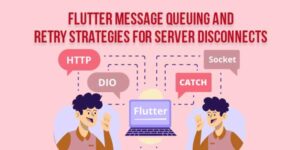
Referrals and sales leads are the essence of every business. However, for the events industry, in particular, these aspects of business development hold even more importance. Events are planned and launched every day in offices, homes, gatherings, business meetings, and even through phone conversations and emails. However, event planners rarely have access to these discussions, which makes it difficult for them to market their service to prospective clients. For these reasons, it becomes even more important for event planners to increase the visibility of their business, which is where engagement modalities come into the picture.
Table of Contents
Social Media Presence:
If utilised efficiently, the internet can act as the most extensive network for generating sales leads. For this reason, event planners take comprehensive measures in developing attractive websites and building their social media presence on platforms such as Instagram, Twitter, and Facebook. Each of these online assets is capable of driving sales and introducing prospective clients. These social media handles also serve as platforms for discussions, sharing of expert views, and forums where event planners can leverage each others’ assets.
Engage In Live Exposure:
The events industry is very volatile, and with increased competition, staying relevant becomes more critical. Even the most popular event planners will lose their significance if they go too long without live exposure. This could include media experiences and participation in public events like conferences, discussions, etc. The more engagement event planners build in their industry, the more likely they are to be contacted for managing future projects. Live exposure can also be achieved through participation in television or radio shows. Submitting an innovative story idea to the producers can grant people a spot on the show. Planners who are resident experts on event planning have a permanent slot on the airwaves, which goes a long way in increasing the engagement of their business.

Work On Pro-Bono Projects:
Donating time and energy to worthy causes can also open several new opportunities for event planners. Many non-profit organizations prefer a team experienced in organizing events of a similar nature. Not only does this help their business achieve their Corporate Social Responsibility goals, but it also helps planners to network with prospective clients. Since most non-profit organisations are staffed with prominent business leaders and notable dignitaries, building engagement with such a client base can go a long way in generating leads for the business.
Be Innovative:
The events industry is subject to constant change when it comes to designs and planning styles. Even genre-specific event planners might lose out on their market relevance if they repeat the same strategies and techniques every year, which severely affects engagement. Research suggests that 36% of event planners find it challenging to increase their event registrations. As a result, many planners get innovative with their event activities. Businesses can create a unique experience for their members by planning their event around a theme.
For instance, the recent Annual Convention & Trade Show organised by the Illinois Society of Association Executives (ISAE) was themed around teamwork. The event was designed around sportsmanship, which the ISAE related to good team practices at the workplace. Working on a theme helps event businesses in establishing a lasting impression in the minds of the audience, which helps in securing future business opportunities.
Post-Event Engagement:
While organising a great event helps in making the business stand apart from competitors, it is also essential for planners to invest in post-event engagement. Contacting leads and building a relationship helps planners in converting them into customers. This strategy is so compelling that as many as 69% of event companies have a formal lead follow-up plan in order. These strategies list which staff members are responsible for contacting leads, which platforms they’ll be using, the content of messages, and the contact deadlines.
Another effective strategy that planners use for post-event engagement is by talking about their event on social media. Twitter and Instagram serve as the perfect medium with their hashtag tracking feature. Planners create a unique, memorable hashtag that encourages the attendees to continuously engage with the agency even after the event. Other post-event engagement activities include follow-up surveys, thank you messages, and in some cases, sending goodies to the attendees.
Building engagement for event planning business requires creativity and commitment. Not one, but many ideas are employed for creating leads all the year round. The engagement modalities should include a balanced plan of networking mixed with maximising on online properties. With the right planning, creativity, and marketing, event planning businesses can grow both in terms of engagement and attendance.

 About the Author:Ethan Scott is currently working with marketing and
About the Author:Ethan Scott is currently working with marketing and 















Be the first to write a comment.